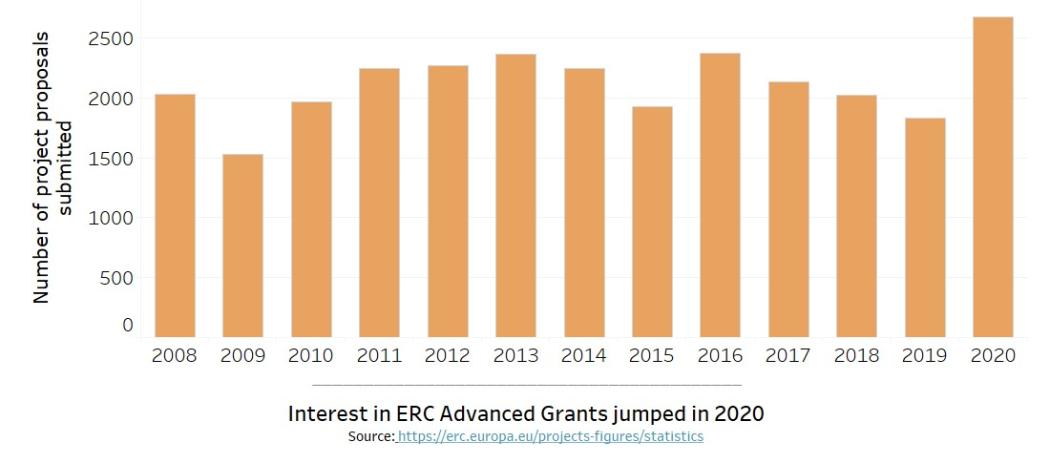Demand for grants means many high-quality fundamental research projects will miss out on funding, ERC president says, as the agency takes its fight for a bigger budget to the Euroscience meeting in Trieste

The European Research Council (ERC) reported a 42 per cent increase in advanced grant applications in 2020 to date, compared to 2019, fuelling protests that cuts to the Horizon Europe budget for the next seven years will undermine ERC’s ability to finance fundamental research.
Greater demand for ERC grants means the success rate for applicants will go down and many excellent projects will not get funded. With the current success rate already a miserly 12 per cent, “We know we are going to miss a significant number of excellent projects,” said Jean-Pierre Bourguignon, recently re-appointed interim president of the ERC.
A bigger budget would help, Bourguignon said. “We argue that an increase in the budget of ERC is a very sure bet,” he told the Euroscience meeting in Trieste today. “We know on past experience that this bet would definitely produce fantastic fruits,” he said.
The reason behind the unprecedented jump in applications is unclear. An ERC spokesman said it may be that “this is the last call under Horizon 2020 and there is some uncertainty about the upcoming framework programme. But we can’t be certain.”
The budget for Horizon Europe, through which ERC is funded, was slashed by the EU leaders in July when they agreed funding of €80.9 billion at 2018 prices, over the next seven years.
The European Parliament is negotiating with the council to reverse the cuts, but time is running out. “If that cut happens in a context of increased interest, with a 42% rise in the number of applications, the outcome will obviously be an enormous decrease in the success ratio,” said Maria da Graça Carvalho MEP. “That is bad news for European researchers and for Europe itself,” she said.
When top researchers prepare good applications that end up being rejected, they take their skills and ideas elsewhere. “We cannot afford to lose our best researchers to our competitors because of our failure to balance correctly our actions with our ambitions,” said Carvalho.
Kurt Deketelaere, the secretary-general of the League of European Research Universities, said a significant budget increase is needed “to fund even a fraction of the excellent research proposals which are submitted.”
He warns that national research budgets are decreasing due to the COVID-19 and the economic crisis, which means the need for EU-level research funding will only increase. The budget of the ERC should increase accordingly.
The increase in demand for grants is the measure of the ERC’s success, said Jan Palmowski, secretary-general of the Guild of European Research-Intensive Universities. “But this is why it is deeply concerning that we have not seen a corresponding increase in funding for the ERC in Horizon Europe,” he said.
Palmowski also wants to see the ERC’s share of the Horizon Europe budget significantly increased from the 17 per cent it is currently set to receive. The COVID-19 pandemic has created a “backlog of scientific research” which the ERC must address, he said.
“[If the budget is approved as agreed in July], it will be a bitter fight between various components [of Horizon Europe],” Bourguignon said. “We do not know who is going to win.”
The council wants to have a budget deal with the parliament by the end of September, Germany’s minister for Europe, Michael Roth, told MEPs on Tuesday. However, there is no clear deadline for the budget negotiations as the parliament seems unwilling to back down and accept the EU leaders’ July deal, with the lower than expected budget for Horizon Europe.
Editor's note: The Horizon Europe budget amount agreed by the EU leaders in July 2020 was corrected in this story on 8 September .





 A unique international forum for public research organisations and companies to connect their external engagement with strategic interests around their R&D system.
A unique international forum for public research organisations and companies to connect their external engagement with strategic interests around their R&D system.